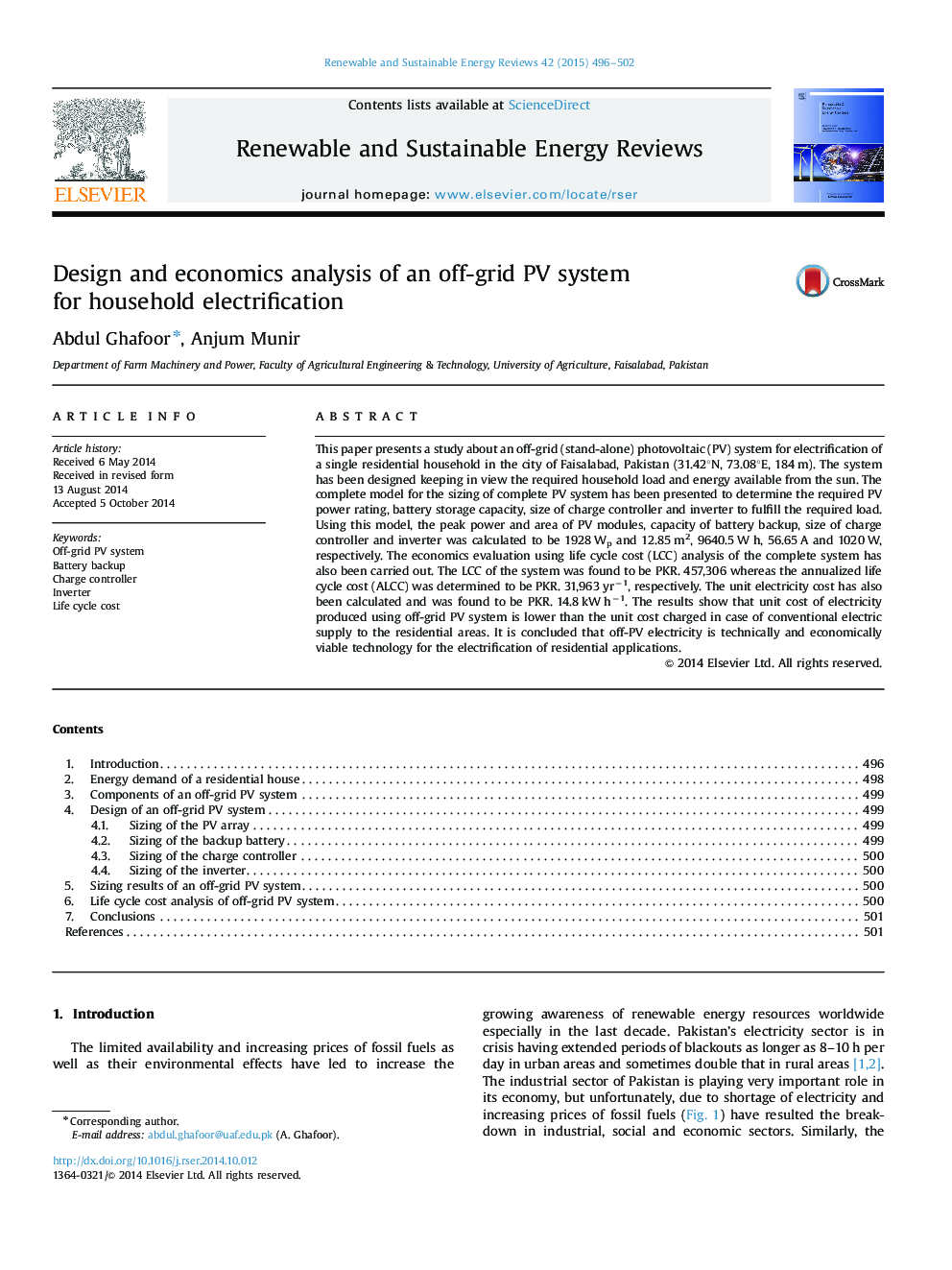| Article ID | Journal | Published Year | Pages | File Type |
|---|---|---|---|---|
| 8117810 | Renewable and Sustainable Energy Reviews | 2015 | 7 Pages |
Abstract
This paper presents a study about an off-grid (stand-alone) photovoltaic (PV) system for electrification of a single residential household in the city of Faisalabad, Pakistan (31.42°N, 73.08°E, 184 m). The system has been designed keeping in view the required household load and energy available from the sun. The complete model for the sizing of complete PV system has been presented to determine the required PV power rating, battery storage capacity, size of charge controller and inverter to fulfill the required load. Using this model, the peak power and area of PV modules, capacity of battery backup, size of charge controller and inverter was calculated to be 1928 Wp and 12.85 m2, 9640.5 W h, 56.65 A and 1020 W, respectively. The economics evaluation using life cycle cost (LCC) analysis of the complete system has also been carried out. The LCC of the system was found to be PKR. 457,306 whereas the annualized life cycle cost (ALCC) was determined to be PKR. 31,963 yrâ1, respectively. The unit electricity cost has also been calculated and was found to be PKR. 14.8 kW hâ1. The results show that unit cost of electricity produced using off-grid PV system is lower than the unit cost charged in case of conventional electric supply to the residential areas. It is concluded that off-PV electricity is technically and economically viable technology for the electrification of residential applications.
Related Topics
Physical Sciences and Engineering
Energy
Renewable Energy, Sustainability and the Environment
Authors
Abdul Ghafoor, Anjum Munir,
